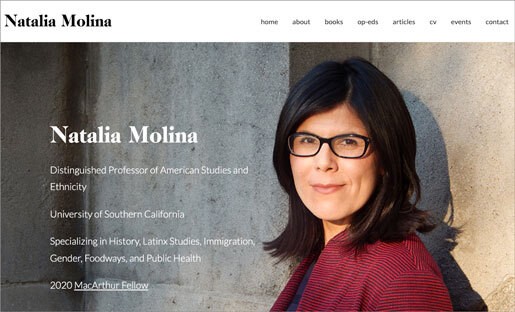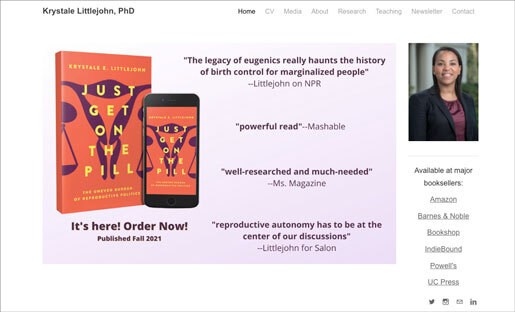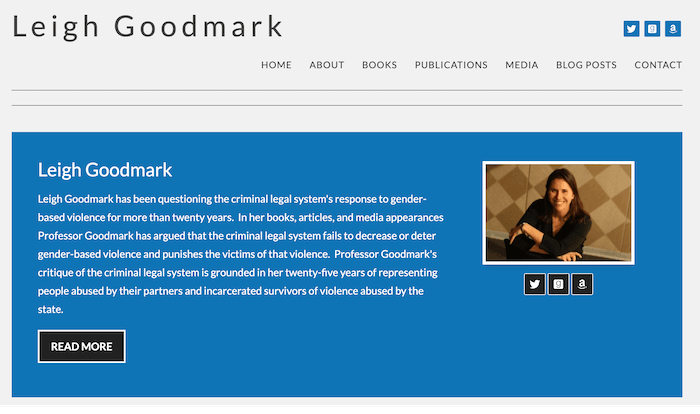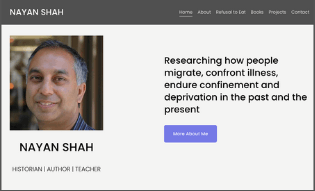
Book Authors
Personal Website
For most scholars, an updated faculty page with a bio and list of publications is all you need. But authors hoping to build their profile and reach a wider public audience may want to consider developing a personal website.
Some universities offer faculty support for designing and building personal websites, so check with your campus media center or IT department to see what they offer.
Platforms like Squarespace or Wix are user-friendly, lower-cost options for creating your own site, even if you don’t have much experience doing so. These sites offer pre-designed templates that you can simply edit. You can also check out Canva for a free, user-friendly tool for designing any graphic elements.
For the layout, select a template that's as simple and streamlined as possible. Here are some key pages to include:
- About. Add a narrative bio and current author photo. You may want to include a link to your CV there (or on your research page).
- Book. Add information on your new book, including the cover image, description, the link to your UC Press book page, and any reviews. Include a clear call-to-action to “order the book” or “learn more.”
- Research. For scholars, include all your research, teaching, and academic history.
- Writing/Media. Capture interviews, op-eds, public writing, or media coverage on the book and your previous work.
- Contact. Include your contact information or a contact form, either on a separate page, or in the footer of your website. If you have an email newsletter, include a place for people to sign-up. If the goal of your website is for readers and media contacts to engage, there should be a clear way for them to reach you.
Author Examples
Find inspiration by perusing some examples from other authors:

Natalia Molina

Krystale Littlejohn

Maxine Gordon

Leigh Goodmark

Nayan Shah

Ieva Jusionyte